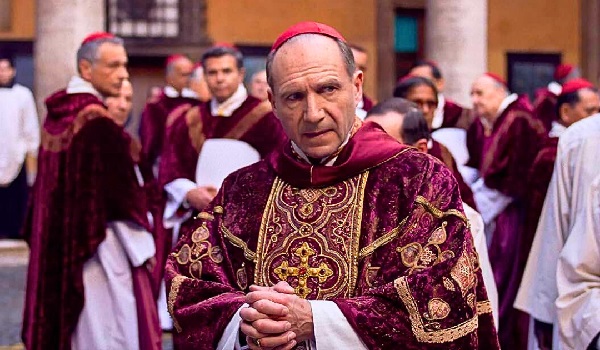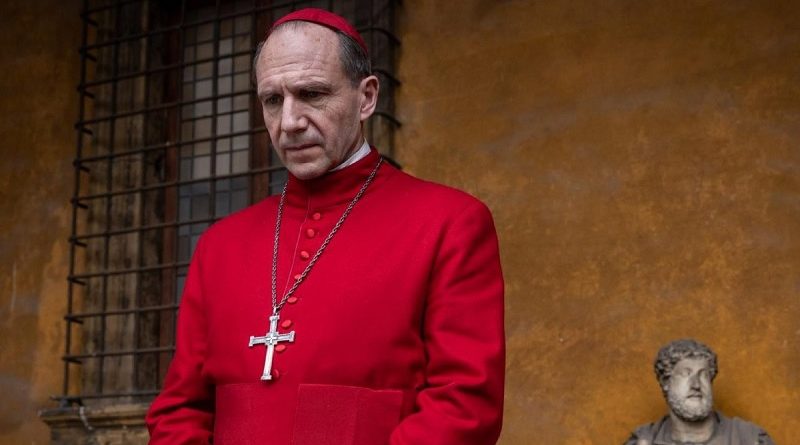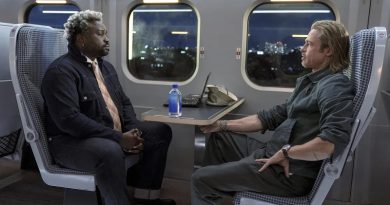Movie Review: Conclave
One-liner: A thoughtful lead performance, ornate visuals and smart writing compel this authentic and timely mystery drama.
Conclave is a suspenseful mystery drama set at the Vatican, where the death of the Pope necessitates the gathering of all cardinals to elect a successor. This fascinating process sees leaders of the Catholic Church from across the globe convene to choose a new head. This critical moment has far-reaching influence and repercussions, making it not only a holy ordination but a decision of monumental importance.
This fictionalized account of such a sacred task, while perhaps familiar to some in its artistic portrayals, is often more enigmatic when it comes to its internal processes and procedures. Conclave offers a curious, behind-the-scenes perspective, primarily from the viewpoint of a dean who must oversee the selection process. As a potential candidate himself, yet tasked with oversight, he wields considerable influence, navigating the complex politics to ensure a fair electoral process that adheres to tradition.
Conclave arrives at a pivotal moment in world history concerning gender, race, and identity, making its exploration of these matters particularly timely. Directed by Edward Berger, the film also adds another layer to the male-dominated Catholic Church with a controversial and divisive ending. Immersing itself in the backroom politics, the film generates considerable tension, playing out like a supersized 12 Angry Men within the hallowed halls of the Vatican. Primary candidates are identified early, and as they discover how votes are spread, one vote after another forces internal machinations to unfold.
A power struggle ensues, ignited by a controversial opening speech from Cardinal Lawrence, which sets the tone for both the election and the film. His words speak to many truths surrounding the selection of such a powerful figure within the Church. This setting and moment provide the filmmakers with a smart vantage point to discuss and debate contemporary issues and moral complexities, allowing them to pontificate about the present in relation to the long-held doctrines and beliefs of the Catholic Church.
Conclave makes for a nuanced, powerful and evocative drama with poetic license. As the voting intensifies, true characters emerge and each of the most popular candidates is subjected to scrutiny, ultimately revealed to fall short of the necessary requirements as new evidence comes to light. It unfolds somewhat like a detective story, with the Dean engaging in dialogues with various College members. This conclave forces its members to be hidden from the world, even as external events threaten to disrupt. While a subplot and thread does become increasingly predictable, the outcome still comes as a surprise.

“This does not bode well.”
Set in the Vatican, the film’s scope expands as moments within the inner sanctum take on an epic quality, thanks to the majestic architecture and the meticulous old-world detail in the artwork and traditions. With a strong sense of authenticity, from wardrobe to high-end production value, it’s easy to become immersed in this world as the drama plays out. What might take some getting used to is the casting and its juxtaposition with the Catholic Church, as familiar faces assume roles and robes that may initially have a somewhat jarring effect.
Each accomplished actor finds their role, with Ralph Fiennes making perfect sense in a brilliantly cast performance that he completely owns. A versatile actor, he humbles himself for this turn, showcasing his true range as a diplomatic emissary and servant-hearted leader who downplays his own ambitions in favor of making the right choice. Stanley Tucci and John Lithgow, actors with comedic backgrounds, add a wry sense of humor to their introductions yet make excellent cardinals, adept at tapping into a pious and self-righteous indignation that suits their roles. Then, Isabella Rossellini adds clout in a key performance as Sister Agnes.
Their presence elevates the overall standing, and while one might have expected someone like Sir Ben Kingsley to appear from the shadows, the film makes interesting choices and maintains a strong level of performance from the ensemble, creating an authentic and ornate drama. It also possesses an artistic eye and strong aesthetic appeal, crafting beautifully composed cinema from its great hall to the backrooms. The cinematography is another highlight of this well-balanced film, while the writing is solid, thoughtful, and elevated by strong dialogue.
The creeping tension is gentle, maintaining a marked sensitivity without playing it safe. Conclave is a well-acted, ornate, visually striking, and thought-provoking drama that sustains dramatic tension without tripping into a multi-genre no man’s land, which would have made it a much more ambitious and tricky production to navigate. Thanks to a first-rate performance from Ralph Fiennes, fine production values, pensive drama and some clever twists and turns, it remains a film that is both modern in its aesthetics and timeless in its deconstruction of man’s innate prejudices, self-delusion and lust for power.
The bottom line: Ornate





